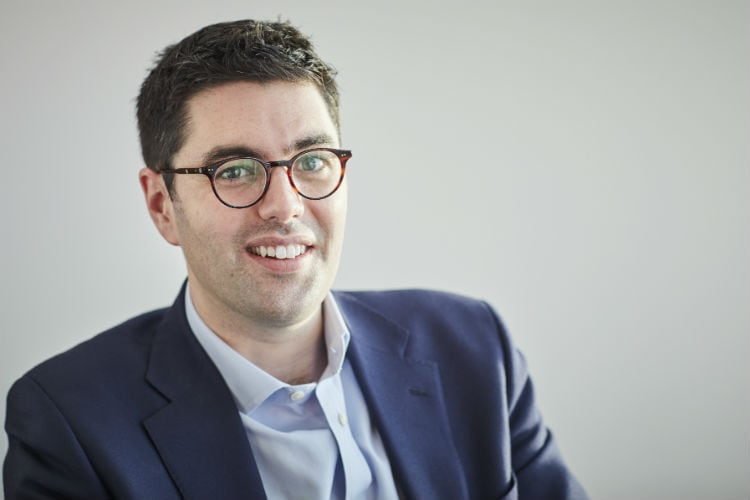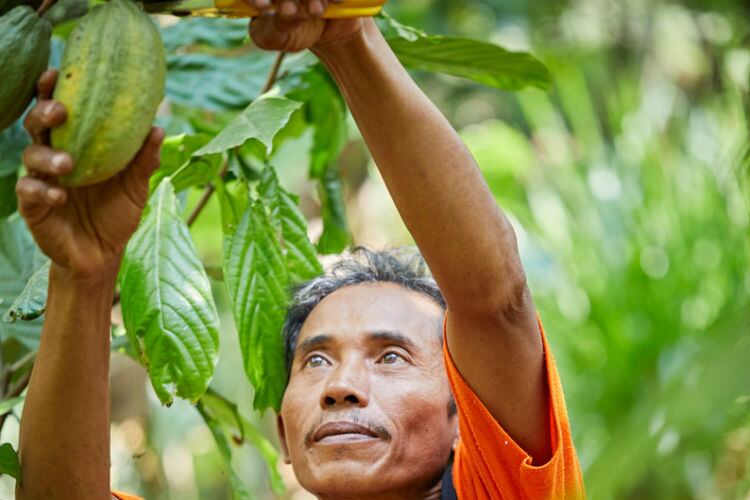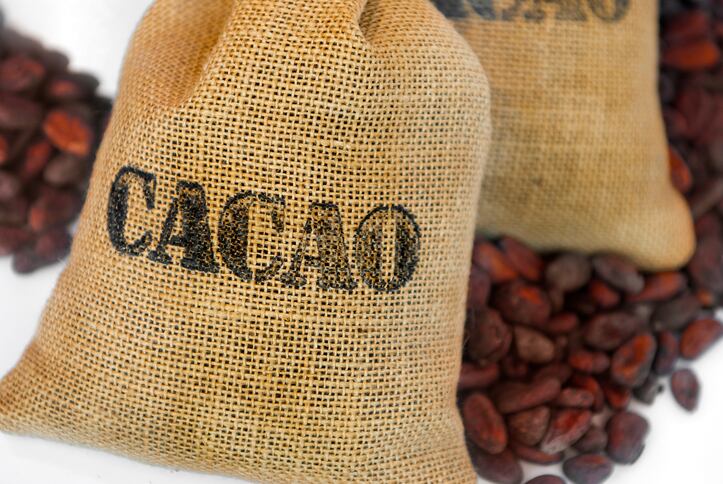Two days before Valentine’s Day and latest figures from the National Confectioners Association reveal that 80% of Americans will buy chocolate or candy as a treat for loved ones this year, which is good news for the industry on a whole.
Olam Cocoa is one of the world’s leading processors of cocoa powder, cocoa mass (also known as cocoa liquor or cocoa paste), and cocoa butter and has a pledge to achieve 100% traceable and sustainable cocoa volumes from its direct origination supply chain by 2020.
Brayn-Smith, a former captain in the British Army, is the person responsible for the action plan since moving into his current role a little over a year ago.
“The cocoa industry has to become actually more sustainable than it is by a very long way,” he says. Cocoa is ultimately a crop where many of the farmers live in poverty. It's a crop where a lot of the children of farmers don't necessarily have access to quality education. It's a crop where there are issues on deforestation. It's a crop that actually if we don't solve the problems that are facing us we might not have cocoa in the future - or if we do it will be prohibitively expensive to most people.”
Leadership
We were speaking a few days after global food and agri-business Olam International revealed plans to invest $3.5bn to enhance its leadership position and capture key emerging consumer trends driven by advances in technology, and an increasing demand for healthier foods, traceable and sustainable sourcing, e-commerce and the rise of “purpose” brands

The group announced that as part of its six-year strategy it will begin de-prioritising and divesting four businesses – sugar, rubber, wood products, and fertiliser – and other assets that “no longer fit with Olam’s strategic priorities”.
Co-founder and group CEO, Sunny Verghese said: “With our focus on farmgate origination, end-to-end traceability, sustainability, digital initiatives and innovations like AtSource, Olam is already primed to start capturing growth from this fast-changing landscape. Now, following a comprehensive review, our strategy is fully focused on harnessing these health and ethical sourcing trends, as well as changing consumer preferences. Crucially, our strategy will allow us to play a leading role in re-imagining global food and agri-supply chains for the better – sourcing raw materials within the earth’s capacity to regenerate and transforming those materials to deliver food, feed and fibre for a growing population.”
Priority
Brayn-Smith says Olam Cocoa's strategy is to work with farmers to make them more productive so they can provide a living income for themselves and their families.
This strategy entails coming up with a farm development plan, managing the crop more efficiently, diversifying into other areas such as bee-keeping for honey, and introducing a program called ‘One Farmer One Acre’ to maximize productivity.
Like other cocoa suppliers, labor issues are a concern for Olam Cocoa and Brayn-Smith says the company works closely with The Fair Labor Association and adheres to the international code specifically around child labor.
He says that Olam Cocoa takes deforestation and the environment very seriously and are working on a number of issue on a landscape level to try and prevent further deforestation.
To help keep a track of these varied initiatives, Olam has introduced its AtSource traceability digital platform. It allows Olam to present data through a digital dashboard that tracks the social and environmental footprint of a product such as cocoa, coffee and cashew. These supply chain insights and data will drive "transformational change for farmers, rural communities and the planet", Olam said, at the time of its launch in spring 2018.
“It's a sustainability implementation program that consists of three different layers,” said Brayn-Smith. “It’s also a digital platform where customers can go into it and really understand about the product.”
The three tiers are:
- AtSource Entry Tier: Supply chain information
- AtSource Plus: Measurable impact
- AtSource Infinity: Transformational change
Finally, Olam’s Cocoa innovation centres (there are six dotted around the world) allow its scientists to try out new types of ingredients and collaborate with its B2B customers to understand consumer trends and changing tastes and adapt its cocoa powder to stay ahead of the market.
Although most consumers buying their Valentine chocolate this week don’t realize, or in some cases, care where it comes from, it’s a journey that Olam Cocoa and other suppliers are ultimately responsible for.
“I would encourage everyone to be eating more chocolate and more cocoa products - that definitely helps what we're doing in order to help and support our farmers. It all helps to drive this industry and business and make cocoa more sustainable,” said Brayn-Smith.


